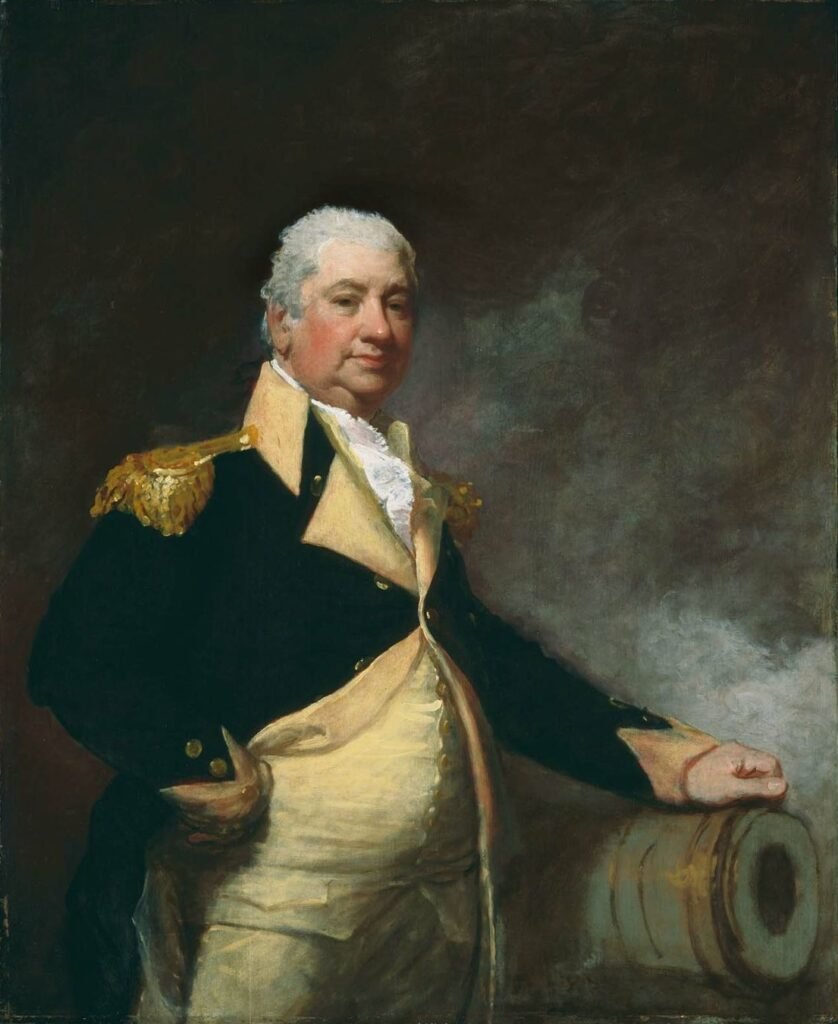Henry Knox, a name often overshadowed by the towering figures of the American Revolution, played a pivotal role in shaping the early military and defense policies of the United States. As the first Secretary of War under the U.S. Constitution, Knox was instrumental in laying the foundation for the nation’s armed forces and ensuring the survival of the fledgling republic. His contributions to American independence and his visionary leadership in the post-war era cemented his legacy as one of the most important figures in early American history.
Early Life and Rise to Prominence
Born on July 25, 1750, in Boston, Massachusetts, Henry Knox was the seventh of ten children. His formal education ended at the age of 12 when his father died, forcing him to work to support his family. Knox found employment in a Boston bookstore, where he developed a lifelong love of reading and self-education. His interest in military history and artillery, in particular, would later prove invaluable.
When the American Revolution broke out in 1775, Knox, a staunch patriot, quickly joined the cause. Despite his lack of formal military training, his knowledge of artillery and his natural leadership abilities caught the attention of General George Washington. Knox’s most famous early achievement was the daring expedition to transport captured British artillery from Fort Ticonderoga in New York to Boston in the winter of 1775-1776. This feat, known as the “Noble Train of Artillery,” provided Washington with the firepower needed to force the British to evacuate Boston, marking a turning point in the war.
A Trusted Advisor to Washington
Throughout the Revolutionary War, Knox served as one of Washington’s most trusted advisors. He was appointed Chief of Artillery and played a key role in major battles, including Trenton, Princeton, Brandywine, Germantown, Monmouth, and Yorktown. His expertise in artillery tactics and logistics earned him widespread respect, and he was promoted to the rank of major general by the war’s end.
Knox’s relationship with Washington extended beyond the battlefield. The two shared a deep mutual respect, and Knox’s loyalty and organizational skills made him indispensable to the Continental Army. His contributions were critical to the eventual American victory in 1783.
The First Secretary of War
After the war, Knox continued to serve his country in a civilian capacity. Under the Articles of Confederation, he was appointed Secretary of War in 1785, overseeing the small and underfunded Continental Army. When the U.S. Constitution was ratified in 1789, President George Washington appointed Knox as the first Secretary of War under the new federal government.
As Secretary of War, Knox faced the daunting task of building a national military from scratch. He advocated for a strong, centralized defense system, emphasizing the importance of a standing army and a well-regulated militia. Knox’s vision was rooted in the belief that a secure nation required a professional military capable of defending against external threats and maintaining internal order.
One of Knox’s most significant achievements was the establishment of a network of coastal fortifications to protect American ports from foreign invasion. He also played a key role in negotiating treaties with Native American tribes, though these efforts were often undermined by westward expansion and settler encroachment.
Legacy and Impact
Henry Knox’s tenure as Secretary of War ended in 1794 when he retired to his estate in Maine. Despite his retirement, his influence on American military policy endured. His emphasis on a professional military and his efforts to modernize the nation’s defenses laid the groundwork for the U.S. Army’s future development.
Knox’s legacy extends beyond his military and administrative achievements. He was a man of integrity, dedication, and vision, qualities that earned him the trust and admiration of his contemporaries. His contributions to the American Revolution and the early republic were essential to the nation’s survival and growth.
Today, Henry Knox is remembered as a founding father who helped shape the United States into a strong and independent nation. His life and work serve as a testament to the power of determination, knowledge, and leadership in the face of adversity. As the first American Secretary of War, Henry Knox not only defended the nation in its infancy but also helped build the foundation for its future strength and security.

